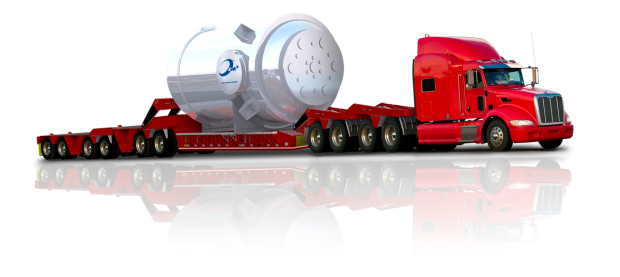Recent technological advancements could turn environmentalists into huge fans of nuclear power, according to a nuclear physicist.
Physicist Christina Back said her company General Atomics has developed nuclear fuel that can keep advanced nuclear power plants from melting down, which could largely address public fears about expanding the U.S. nuclear fleet.
“In our case we are trying to use the nuclear fuel much more efficiently,” Back told The Daily Caller News Foundation. “We’re using uranium carbide not uranium oxide, the typical light water reactor fuel. We consume that fuel at higher temperature but use a helium coolant instead of water because it doesn’t not react because it is an inert gas.”
Helium coolant, combined with accident tolerant fuel that stands up to much higher temperatures would make a meltdown, like the Fukushima Daiichi reactor meltdown in 2011, impossible in the General Atomics design.
“The helium is what cools the fuel element and carries the heat away,” Back said. “In the case of Fukushima, very high temperatures caused the water to react with the metal and essentially liberating the hydrogen. Hydrogen is an explosive gas so it exploded. It is not possible for that to happen in our design.”
The design could also reduce the amount of nuclear waste generated. Most of that waste could even be reused, eliminating the need for large, expensive storage facilities.
“When we keep the fuel in the reactor longer we can burn up the long lived radioactive fission products which is basically less nuclear waste,” Back said. “For the energy multiplier design we can use the used fuel and put it back into the reactor. When we do that, we can get down to 97 percent less waste and none of it would be the long lived radioactive products. We would not need geological storage.”
Nuclear power plants generate power without emitting carbon dioxide (CO2), which is blamed for global warming, but doesn’t suffer from the indeterminacy of wind and solar power. But environmentalists aren’t on board with nuclear power.
“This is a low-carbon energy source,” Back said. “It provides clean base-load electricity.”

Graphic of the EM2 advanced nuclear reactor being transported on a truck.
Credit: General Atomics, used with permission
Some environmentalists are preemptively rejecting advanced reactors, however, despite their advantages.
“No matter how technically advanced the nuclear reactor, there is always an unpredictable and deadly combination of human error, technological failure and natural disaster that can lead to a catastrophic nuclear accident,” Greenpeace International says on its website.
Getting regulatory approval from the U.S. Nuclear Regulatory Commission (NRC) to build a conventional reactor can take up to 25 years, while building a new plant by itself only takes about 10 of those years.
The NRC requires so much paperwork from the nuclear power providers that the average plant requires 86 full-time employees just to go through it all.
NuScale Power spent $500 million and 2 million labor hours over eight years to just ask the federal government for permission to build an advanced nuclear reactor. The energy company to file a 12,000-page application to build an advanced nuclear reactor.
NuScale had to pay NRC officials $258 per hour to review the lengthy application.
Even in this onerous regulatory environment, Back is hopeful that the new reactor will be operational in thirteen years.
“We would like to have our reactor operational by 2030,” Back said. “This coincides with the time when the current fleet of lightwater reactors will begin retiring in mass.”
“Smaller, modular reactors could be a game-changer for nuclear power,” Back said. “They have the potential to be much cheaper than conventional reactors, since they can be manufactured completely in a factory. These reactors would also require far less up-front investment, making them cost competitive with natural gas and more capable of powering remote areas.”
Send tips to andrew@
All content created by the Daily Caller News Foundation, an independent and nonpartisan newswire service, is available without charge to any legitimate news publisher that can provide a large audience. All republished articles must include our logo, our reporter’s byline and their DCNF affiliation. For any questions about our guidelines or partnering with us, please contact licensing@dailycallernewsfoundation.org.


